Ted Kaczynski's Drawings & Diagrams
Monkey Drawing Parodying Nazism
Parody of an Old Advertisement
Techno-Industrial Society Analogised as a Hydra
Diagram of symptoms resulting from disruption of the power process
Aztec Man
Source: <harbor.klnpa.org/california/islandora/object/cali%3A1007>
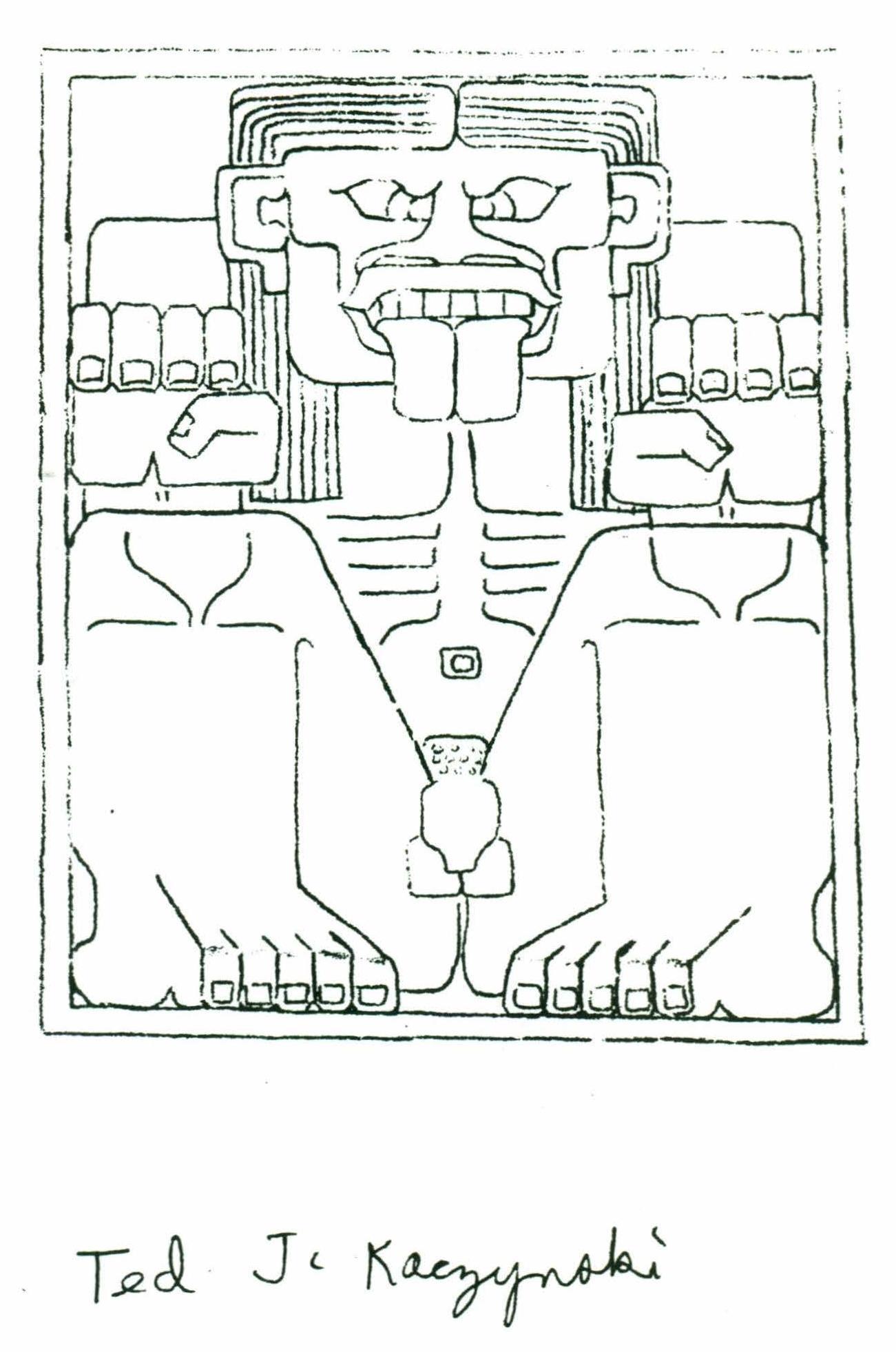
Monkey Drawing Parodying Nazism
Source: <harbor.klnpa.org/california/islandora/object/cali%3A1006>
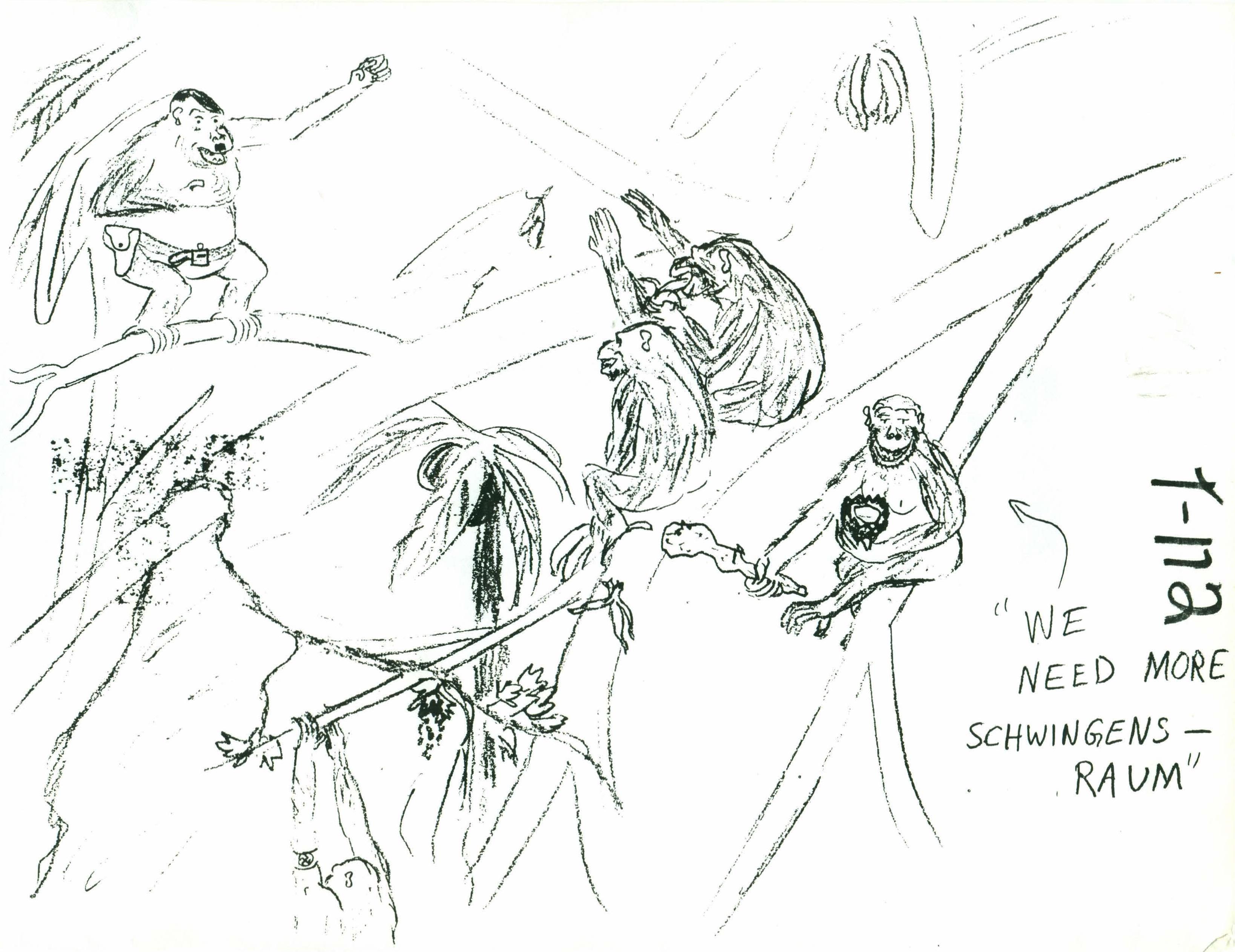
Magnetic Hitler
Source: <harbor.klnpa.org/california/islandora/object/cali%3A1084>
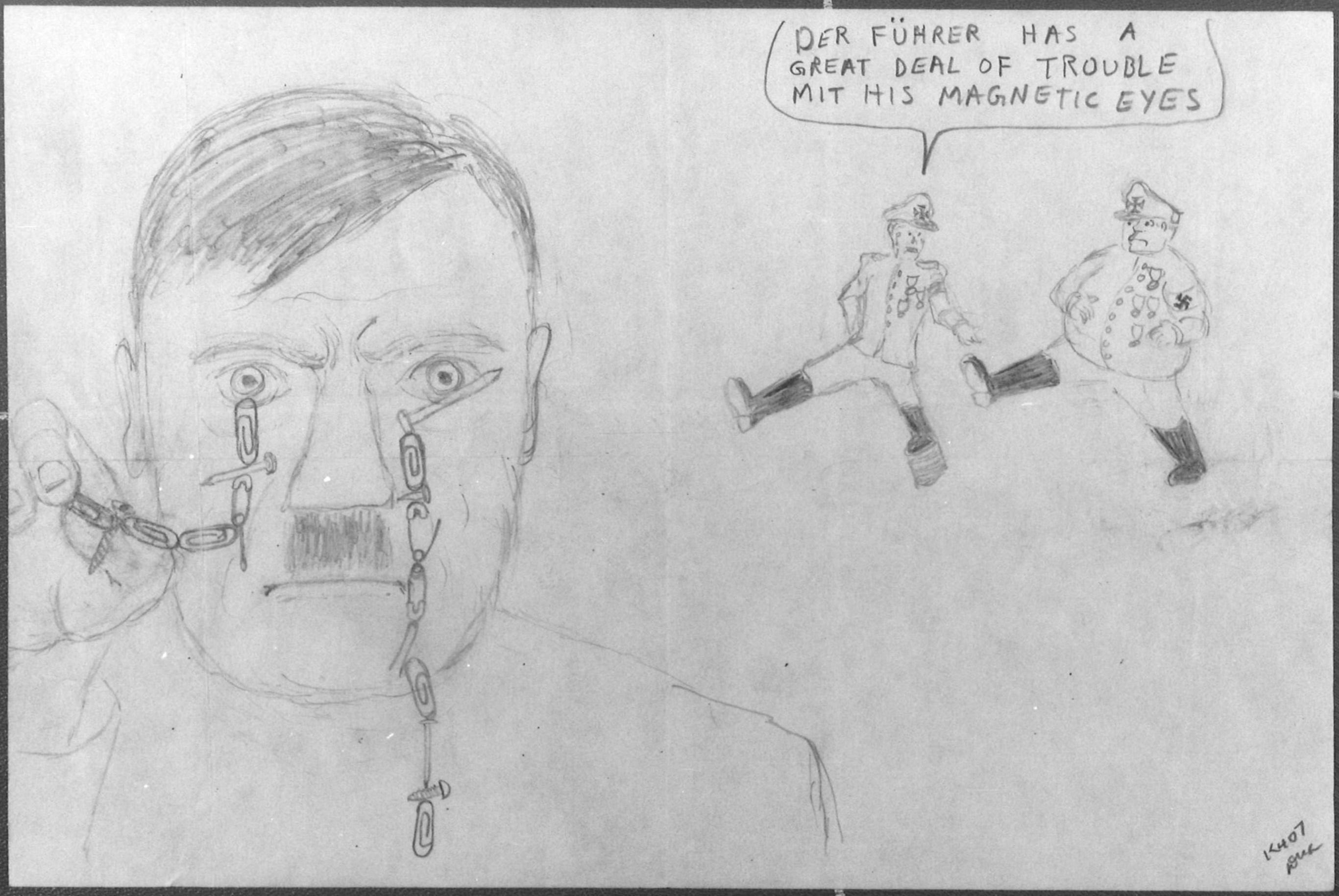
Parody of an Old Advertisement
Source: <harbor.klnpa.org/california/islandora/object/cali%3A1089>
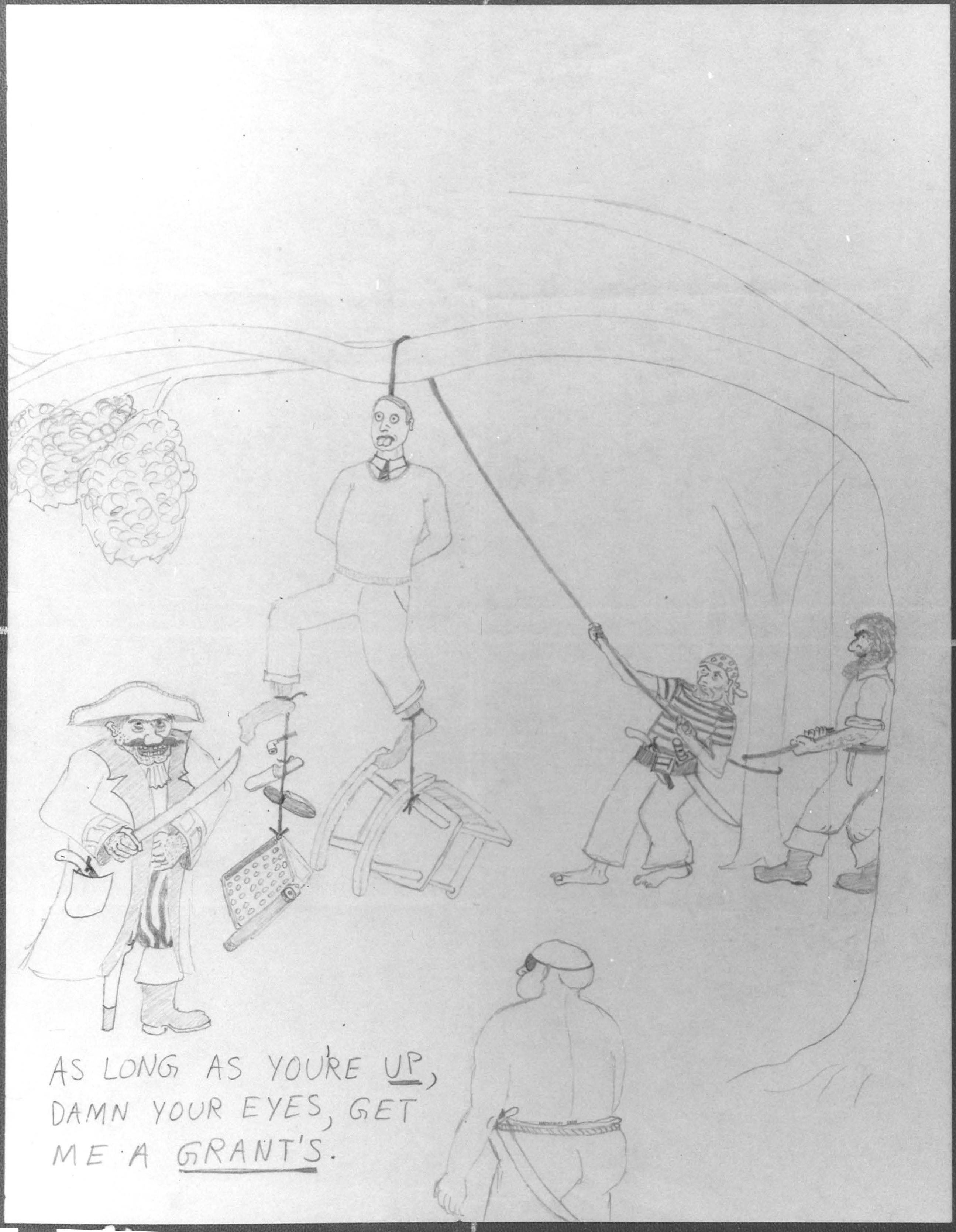
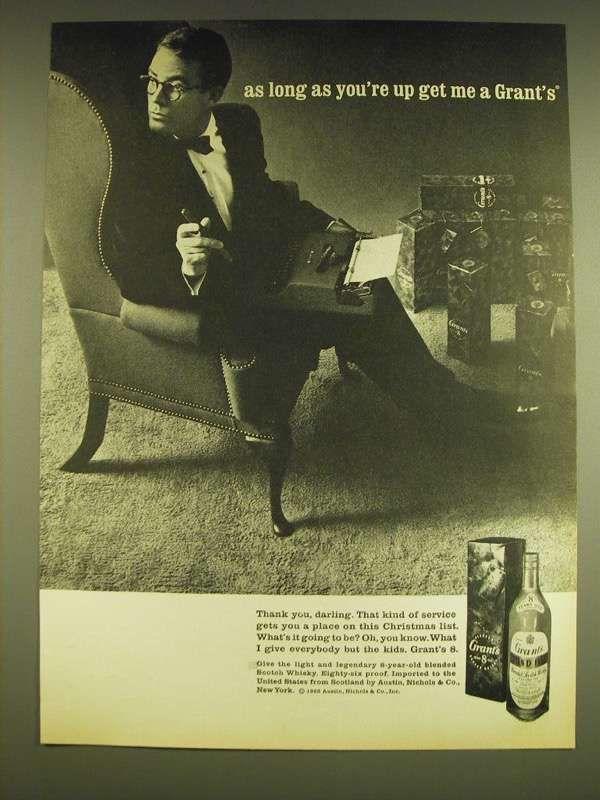
Ted's Self-Portrait
Source: <harbor.klnpa.org/california/islandora/object/cali%3A1148>
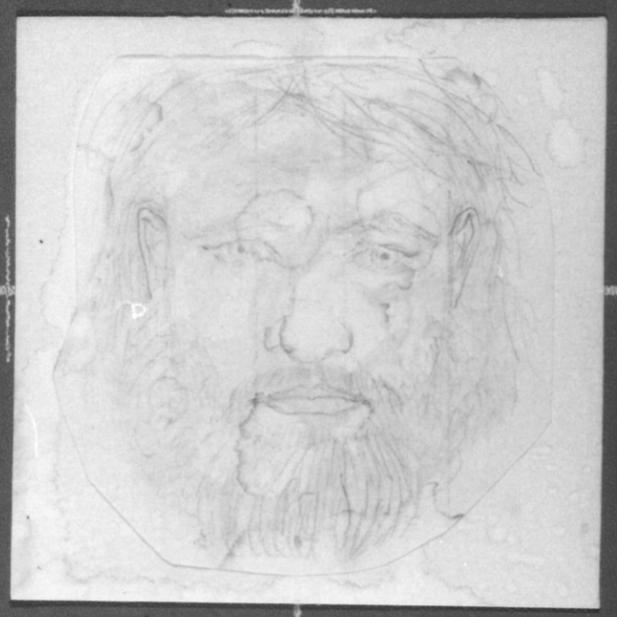
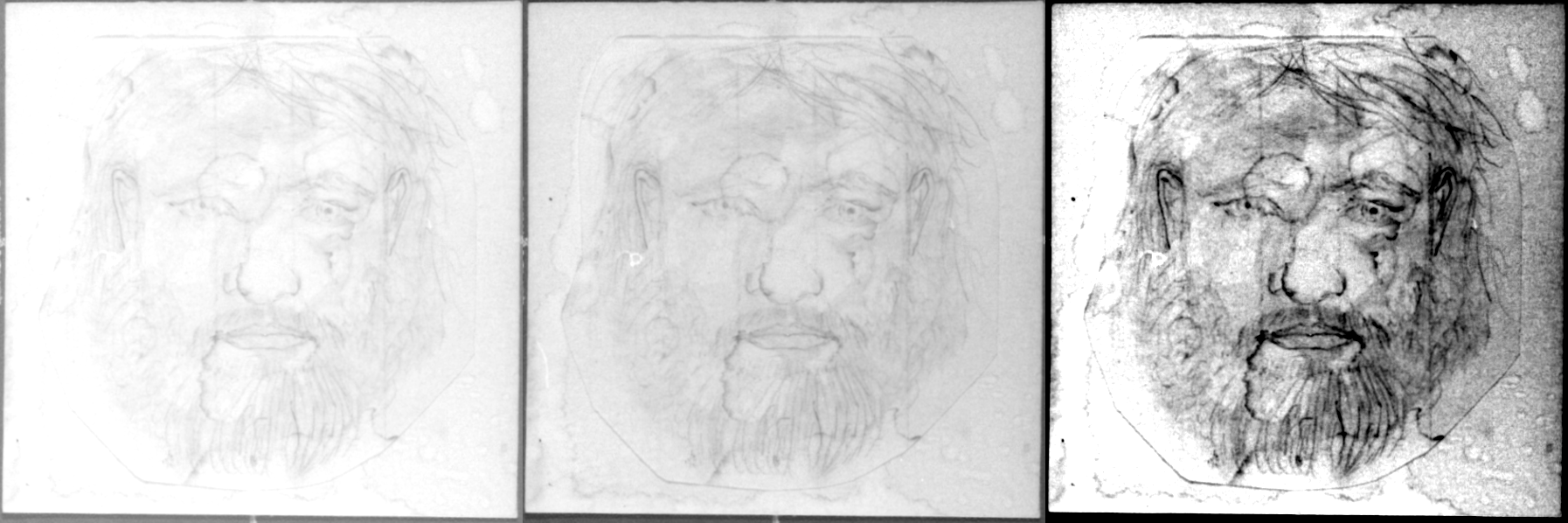

Naked man bending over
Source: <harbor.klnpa.org/california/islandora/object/cali%3A1081>
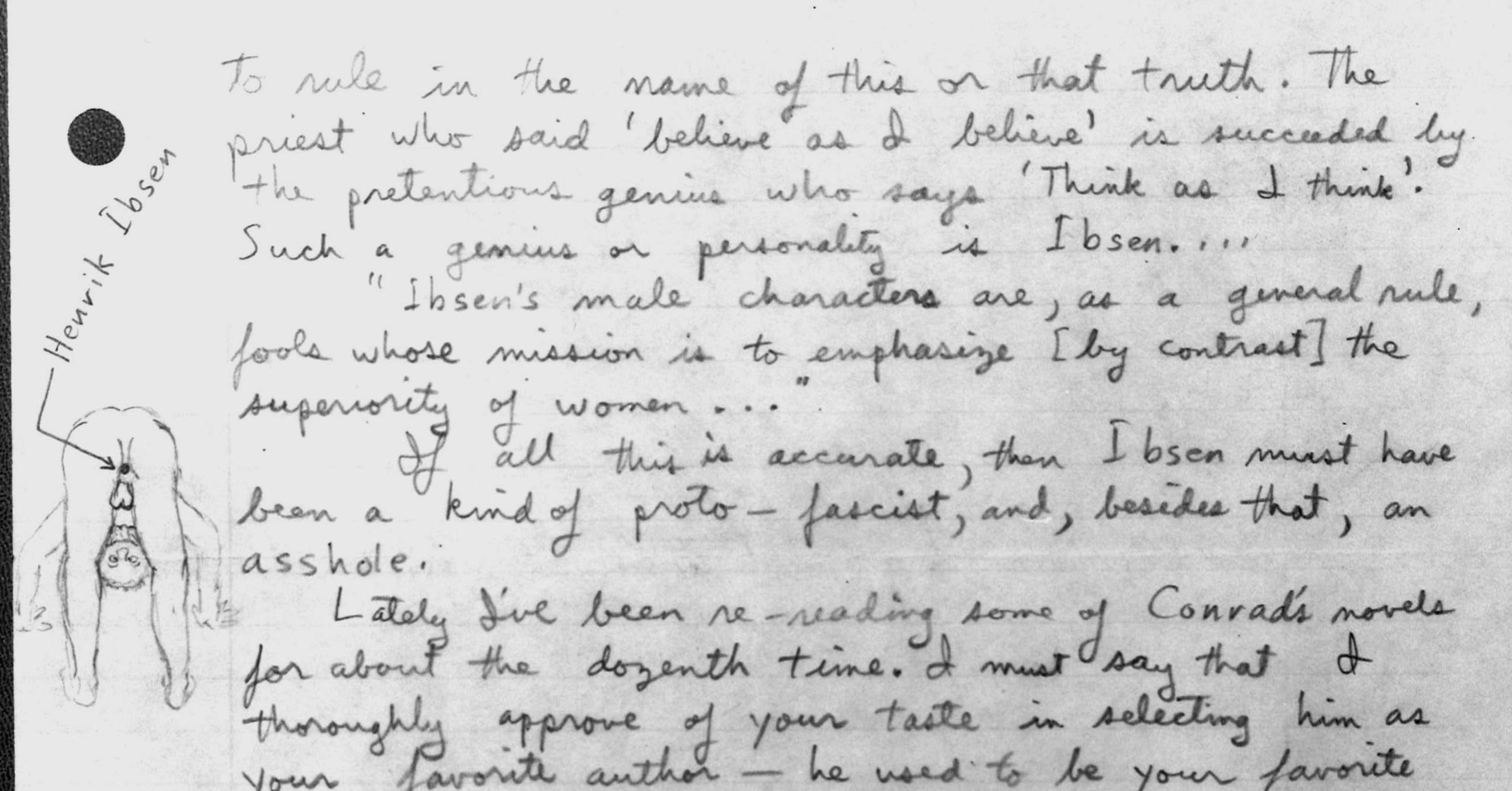
Techno-Industrial Society Analogised as a Hydra
Source: <academicworks.cuny.edu/jj_arch_news/4/>
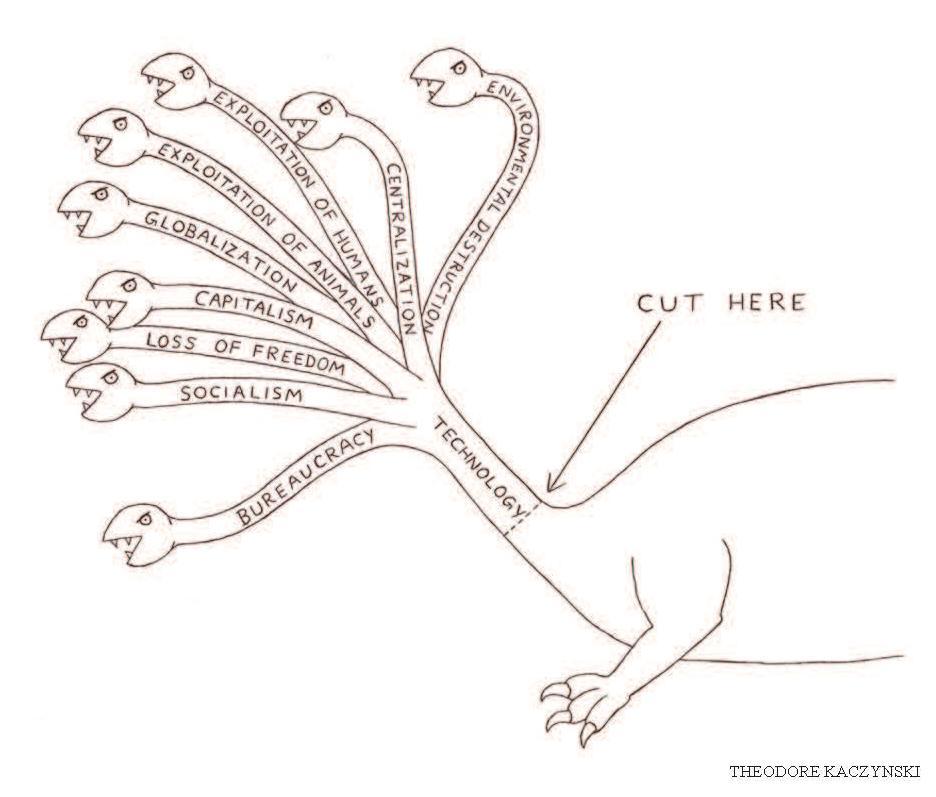
Flower Sketches
Source: <harbor.klnpa.org/california/islandora/object/cali%3A1147>
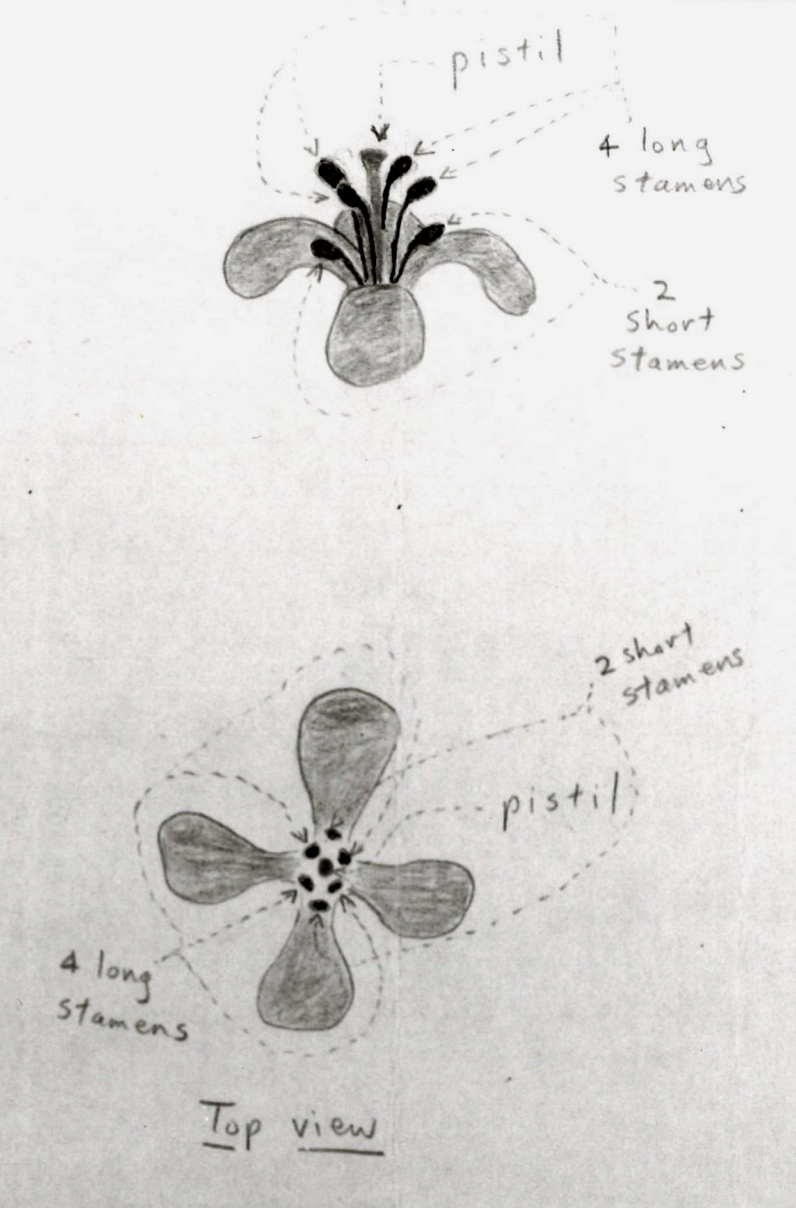
Diagram of symptoms resulting from disruption of the power process
Source: <harbor.klnpa.org/california/islandora/object/cali%3A1238>
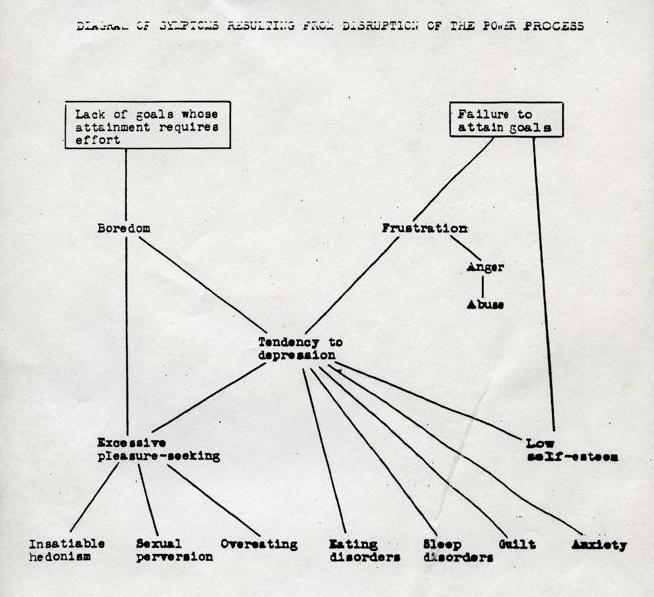
A Description of an Erotic Drawing
Source: <harbor.klnpa.org/california/islandora/object/cali%3A1073>
I sent my drawing to Aunt Freda. You weren't sure whether I should send it to Hoken and Jean, and I feel sorry for Aunt Freda cause she's had a hard life, and she was always nice to me when I was a small child. If she doesn't find the drawing cheering, at least it ought to give her an erotic kick. And I know she's no prude and will not object to a dirty picture. I mean, you know, those old folk like any mark of consideration--even one that is a little unconventional.
To satisfy your curiosity about the picture: Ovid (Publius Ovidius Naso, the Roman poet), tells the story of Atalanta and Meleager. It seems there was this giant-sized wild boar, called the Kalydonian Boar, that was ravaging the Greek district of Kalydonia. The king of this district issued a call to all the heroes of Greece to come and hunt this obnoxious monster.
A great many came, and among them also a heroine named Atalanta. Atalanta was a character somewhat like the huntress-godess Diana (Artemis). Instead of spending her days primping in front of a mirror like any normal girl, she spent her time running around in the woods, hunting, and in this she developed exceptional powers.
Also among the heroes who joined the hunt was Meleager, son of the king of Kalydonia. As soon as Meleager saw Atalanta he fell in love with her.
Well, on the day of the hunt, the first to succeed in wounding the boar was Atalanta; she hit the beast with an arrow. But the wound was not too serious, and Meleager was the one who finally killed the animal. Being in love with Atalanta, he insisted that the "spoils" (ie., the hide and so forth) should be given to Atalanta, on the grounds that she had drawn first blood. Meleager's uncle-his mother's brother-objected to this arrangement on the grounds that it was shameful to give the trophies to a woman. Of course he was perfectly right, but anyway one thing led to another, Meleager and his uncle fought, and the former killed the latter.
Meleager's mother, after considerable vacillation in Ovid's account, finally decided that she loved her brother more than her son, and so killed Meleager in the following manner.
At Meleager's birth there had been a prophecy to the effect that the baby would live just so long as a certain piece of wood, then on the fire of the household, lasted. When the wood was all burned up, Meleager would kick the bucket. So Meleager's mother snatched the brand from the fire and put it out, and thereafter preserved it with great care. So after Meleager bumped off his uncle, his mother put the brand back on the fire and when it was all burned up, Meleager croaked.
Ovid doesn't say whether Meleager had time to have any fun with Atalanta before his mother fixed his wagon, but apparently some Roman painter believed that he did, because Suetoniuse tells the following story about the emperor Tiberius.
I seems that some made a peculiar bequest to Tiberius. Tiberius could choose one of 2 things from the dead man's property: either 10,000 gold pieces (Auriae, I take it) or a certain painting. Suitonius rather sourly informs us that Tiberius not only took the painting in preference to the money, but hung it in his bedroom. The painting, concludes Suitonius, "depicted Atalanta performing fellatio with Meleager. So you can guess what my drawing was. I made Atalanta so beautiful.
